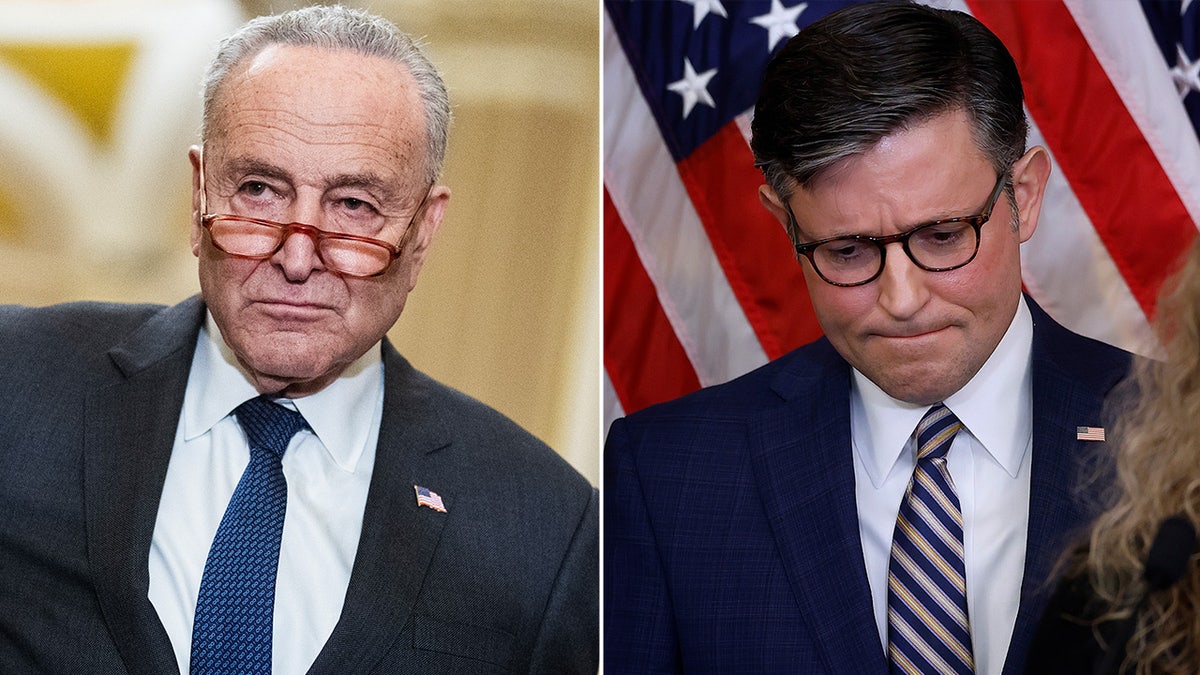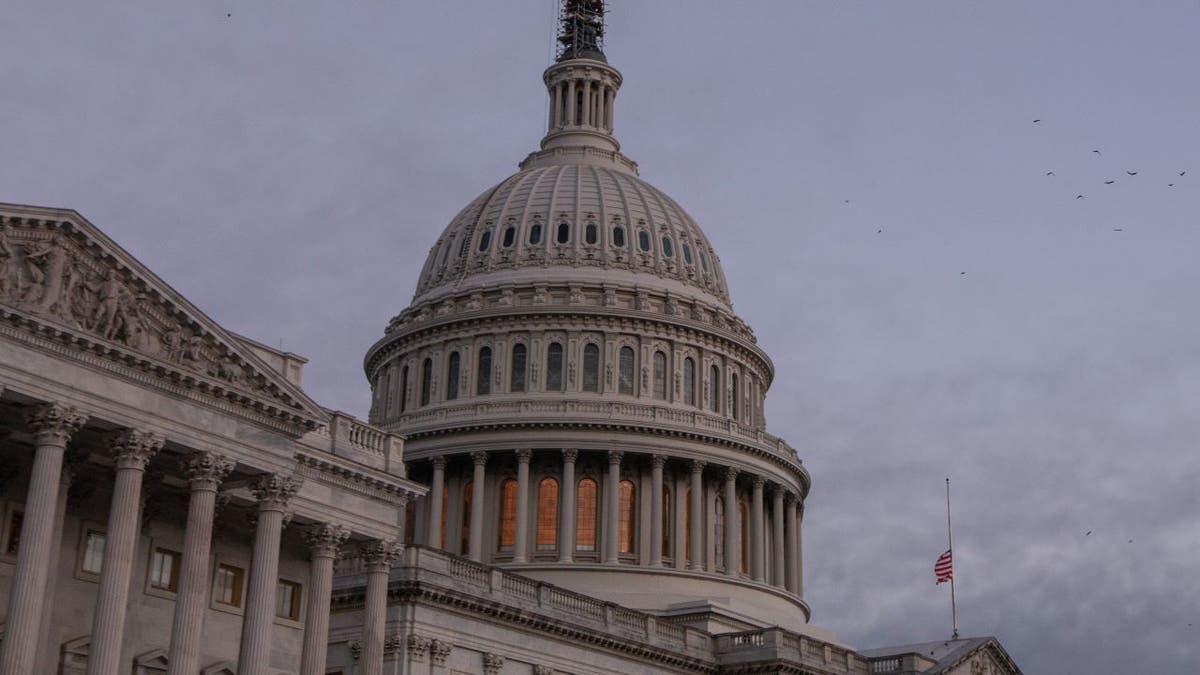House Speaker Johnson receives backlash over spending deal
Fox News senior congressional correspondent Chad Pergram breaks down the controversy on 'Special Report.'
The Senate voted on Tuesday evening to limit debate and advance a vote on the temporary spending patch, known as a continuing resolution (CR), in order to avert a government shutdown later this week.
The vote to advance the bill passed the Senate with bipartisan support 68-13. The Senate can now begin debating the spending bill in hopes of passing it by Thursday before sending it to the House.
Before the vote Tuesday evening, Sen. Majority Leader Chuck Schumer, D-N.Y., said passing the CR "will avert a harmful and unnecessary government shutdown."
"Second, passing the CR will give our appropriators time to finish drafting all 12 bills to reflect our bipartisan agreement," Schumer said. "We want to move forward as quickly as we can to turn this topline number into legislation. But everyone knows we need more time."
The current short-term funding arrangement features dual expiration dates. The initial group of government agencies faces a funding cutoff on Jan. 19, and the second set would expire on Feb. 2.

Senate Majority Leader Chuck Schumer, left, and House Speaker Mike Johnson.
The new CR will follow the same structure as the current one, but it pushes expiration dates for government spending to March 1 and March 8.
The initial set of programs that will run out of funding on Friday includes agencies covered under the Agriculture, Energy-Water, Military Construction-VA and Transportation-HUD spending bills.
The subsequent set includes the Commerce-Justice-Science, Defense, Financial Services-General Government, Homeland Security, Interior-Environment, Labor-HHS-Education, Legislative Branch and State-Foreign Operations spending bills.
The aim of having two separate deadlines is to prevent Congress from passing a comprehensive "omnibus" spending bill, a practice widely opposed by Republicans.
CLICK HERE TO GET THE FOX NEWS APP
Earlier this month, Johnson and Schumer struck an agreement to establish the government's discretionary spending levels at $1.59 trillion for fiscal year 2024.
Additionally, they would adhere to a supplementary agreement for an extra $69 billion, originally negotiated between former House Speaker Kevin McCarthy and President Biden, with Johnson negotiating $16 billion in added cuts to offset the total.
HOUSE, SENATE RELEASE BIPARTISAN AGREEMENT ON GOVERNMENT FUNDING AS SHUTDOWN DEADLINES LOOM

The U.S. Capitol in Washington, D.C. (Anna Rose Layden/Bloomberg via Getty Images)
The Senate's vote puts the CR on track to pass the Senate by Friday. Then, the House will have to pass it as well.
However, the Republican majority in the House has experienced deep fractures over federal spending, with a growing bloc of conservatives declaring they prefer a government shutdown to an extension of the previous Democrat Congress’s spending priorities. The House is likely headed for a showdown with its hardliner flank.
Within hours of the CR legislative text being made public, the hard-line right House Freedom Caucus panned it as a "surrender." Johnson, meanwhile, argued that the extra time will keep Republicans on track to secure conservative policy victories in the spending fight.
Fox News' Liz Elkind contributed to this report.















































